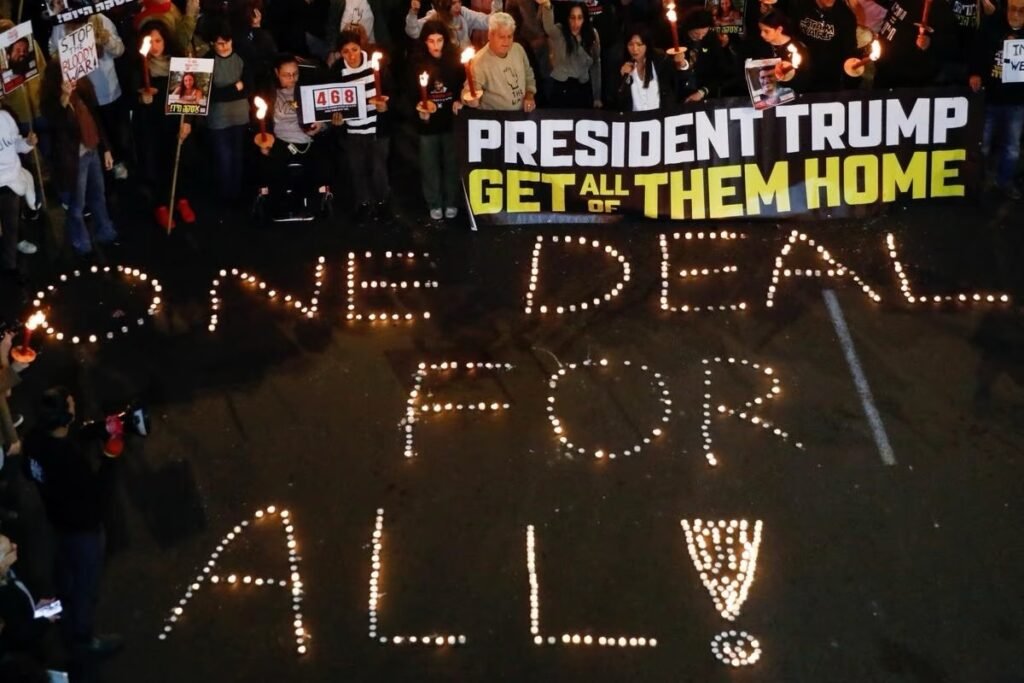Israel and Hamas: A New Deal to Release Hostages
In a major development in the ongoing Israel-Hamas conflict, Israeli Prime Minister Benjamin Netanyahu announced that a deal had been reached to secure the release of hostages held by Hamas. This breakthrough was confirmed by Netanyahu’s office on Friday, January 17, 2025, marking a crucial step toward resolving a humanitarian crisis amidst the prolonged conflict. The Agreement: Key Details Netanyahu’s office revealed that preparations are underway to receive the released hostages and that families had been informed of the imminent exchange. The political-security cabinet is set to meet to deliberate on and approve the agreement, which, if ratified, would mark the beginning of a truce scheduled for Sunday. How the Deal Works The truce reportedly involves: 1. Exchange of Hostages: Israeli hostages held by Hamas will be released in return for Palestinian prisoners. 2. Negotiating a Permanent End: The agreement sets the stage for talks aimed at achieving a permanent end to the conflict. 3. International Mediation: Qatar and the United States have been pivotal in mediating the deal, underlining the critical role of international diplomacy in resolving this crisis. Accusations and Denials Tensions around the agreement escalated earlier in the week when Netanyahu’s office accused Hamas of reneging on key parts of the arrangement in an attempt to extract additional concessions. Hamas vehemently denied these accusations, underscoring the fragile trust between the two parties. Humanitarian Impact The hostages’ return is a significant milestone for their families, many of whom have endured months of uncertainty and heartbreak. Hostage situations are deeply distressing, and their resolution is often fraught with political, logistical, and emotional challenges. This exchange could also benefit Palestinian families awaiting the release of prisoners, creating a bittersweet moment on both sides of the conflict. What Comes Next? If the Israeli cabinet approves the deal: • The truce is expected to commence on Sunday, possibly pausing violence and offering a window for diplomatic negotiations. • Preparations for the final terms of a permanent ceasefire would then take center stage, potentially ending this chapter of violence and creating room for peace discussions. However, the road ahead remains complex. Achieving long-term peace will require addressing core issues of the Israeli-Palestinian conflict, ensuring security for Israel while addressing Palestinian aspirations for sovereignty and rights. Role of International Mediators The involvement of Qatar and the United States highlights the importance of external players in navigating sensitive negotiations. Qatar has historically played a role in bridging gaps between conflicting parties in the Middle East, while the U.S. remains a key ally of Israel with vested interests in regional stability. Conclusion The announcement of this deal represents a glimmer of hope amidst an ongoing war. While the hostages’ release would provide immediate relief, the ultimate goal is a lasting peace between Israel and Palestine. Only time will tell whether this agreement serves as a stepping stone toward resolving decades of conflict or remains a temporary pause in hostilities. The world watches with cautious optimism as the deal unfolds, praying for a resolution that benefits the lives of those impacted by the conflict on both sides.
Israel and Hamas: A New Deal to Release Hostages Read More »

